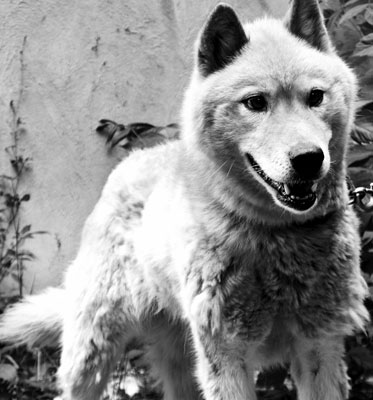All Nonfiction
- Bullying
- Books
- Academic
- Author Interviews
- Celebrity interviews
- College Articles
- College Essays
- Educator of the Year
- Heroes
- Interviews
- Memoir
- Personal Experience
- Sports
- Travel & Culture
All Opinions
- Bullying
- Current Events / Politics
- Discrimination
- Drugs / Alcohol / Smoking
- Entertainment / Celebrities
- Environment
- Love / Relationships
- Movies / Music / TV
- Pop Culture / Trends
- School / College
- Social Issues / Civics
- Spirituality / Religion
- Sports / Hobbies
All Hot Topics
- Bullying
- Community Service
- Environment
- Health
- Letters to the Editor
- Pride & Prejudice
- What Matters
- Back
Summer Guide
- Program Links
- Program Reviews
- Back
College Guide
- College Links
- College Reviews
- College Essays
- College Articles
- Back
Who's Afraid of Virginia Woolf?
“What does the title of this play mean in relation to Virginia Woolf?”
The phrase “Who’s afraid of Virginia Woolf?” correlates to the Disney movie, “Who’s afraid of The Big, Bad Wolf,” which was the animated version of the “Three Little Pigs” nursery rhyme. The comparison is a play on words with Woolf’s name used in place of the Big Bad Wolf who is a fixture or symbol in a number of fairytales with a cautionary element and an ominous threatening character. In the animated movie, the characters sing, “Who’s afraid of the big, bad wolf?” when they are frightened and in the play, the characters do the same, but substitute Woolf’s name for the Big Bad Wolf.
The use of Virginia Woolf in this way, may be a reference to Woolf’s stream-of-consciousness writing style in which she revealed her characters’’ truths, avoidance of truth, and their underlying emotional and psychological motives. In Albee’s play, the characters Martha and George have difficulty facing the reality of their lives as dependent on Martha’s father for George’s job as a professor and their housing on the same campus at which Martha’s father is also President. George and Martha are also hiding from the truth of their childlessness and the pain and sense of failure they endure as a result, even going so far as to create a fictional son they keep alive through writing. These characters also do not want to look at the reality of their marriage. They know it is deteriorating, and that their facade of normalcy has cracks and it scares them deeply to admit it. When such fears or denial come up in the play or when George wants to remind Martha of this denial, George sings, “Who’s Afraid of Virginia Woolf.” Woolf herself was not a menacing person, but as a strong, highly intellectual woman successful in her own right, and most significantly, as a writer who wrote with raw honesty forcing her characters to see reality, Woolf represented what they wanted to avoid—the cold, hard truth. Albee asks his characters and audience a powerful question: Who is afraid of living life without illusions?
“How do references to Woolf change as the production progresses?”
In the early scenes of the play, the nursery rhyme is met with laughter and hilarity. The characters seem to find it humorous and concurrently a bit ridiculous. It seems to trigger no ill will at this point and merely to be an inside joke. Humor can hide insecurity and underlying anger and depression, however, and later on, the phrase is spoken with more mockery than humor. It is said not to amuse, but to taunt and aggravate—to push emotional buttons and reveal insecurities.
By the end of the production, George sings the song despairingly to Martha, and it may be at that moment that the two protagonists finally acknowledge their fear of reality, and the unknown life that awaits them if they choose to face the truth.
Their pitiable, defeated appearance in the last scene is evidence that one or both of them may ultimately surrender to fear. Indeed, Martha answers the perplexing question without a struggle; Who’s afraid of Virginia Woolf?
“I am.”
“How does the fact that this play takes place on a college campus relate to the title?”
Colleges and universities are thought of as places of intellectual freedom and truth. To be in that environment professionally and personally while living so many illusions would be especially poignant. The setting being on a small campus also lends itself to a feeling of personal and professional limits and restriction. A small campus, like a small town, is also very interconnected. Everyone knows everyone’s business, so it would increase George’s and Martha’s isolation to live illusion in a place where the truth was easily seen or revealed. Also by being on the campus at which Martha’s father is the president, George and Martha are not able to fully be independent adults. The stagnant life they are living may also be increasingly difficult for George and Martha to stomach as they are always surrounded by youth, the pursuit of truth, and new beginnings on a college campus.
All of this is pertinent to the title as Virginia Woolf is read, studied, analyzed, debated, written about and revered in academic settings. She was an educated, successful woman and writer. She represented equality, truth, and intelligence, and her writing forces her readers, fans, and even her critics to look at human emotions, decisions, psychology, reality and illusion.

Similar Articles
JOIN THE DISCUSSION
This article has 0 comments.
